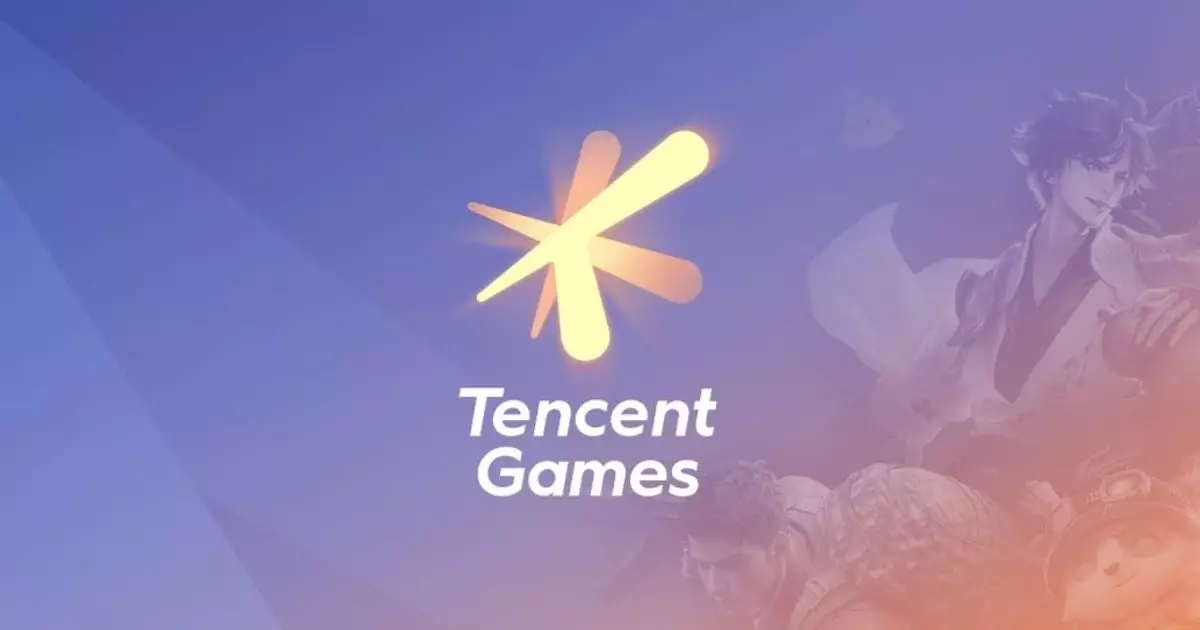Chinese tech giant Tencent has recently found itself embroiled in a significant controversy after being placed on a list of Chinese military companies by the US federal government. This designation has raised concerns about Tencent’s business operations in the West and its potential implications for the gaming industry, which is already under scrutiny in various nations. With a portfolio that includes renowned game developers like Riot Games and Grinding Gear Games, Tencent has a lot at stake.
The US government’s classification stems from a broader strategy aimed at exposing the perceived connections between China’s military and its civilian technology enterprises. By placing Tencent on this list, the US is echoing its concerns over the possible integration of military and civilian resources in China—often referred to as “military-civil fusion.” This framework suggests that technologically advanced civilian companies could unknowingly, or knowingly, contribute to China’s defense capabilities. Critics argue that this policy demonstrates paranoia rather than factual assessments, potentially alienating significant partners in the tech sphere.
In response to these allegations, Tencent’s representatives have categorically denied any links to military endeavors. The company’s statement emphasizes that the US government’s claims are based on misconceptions, insisting that it operates independently from military influences. This rebuttal is crucial not only to protect Tencent’s reputation but also to ensure its continued collaboration with the international market, particularly in the competitive gaming landscape.
Legal Repercussions and Corporate Response
Tencent has expressed its readiness to engage in legal battles should the misunderstanding persist. The chairman, Ma Huateng, along with the executive board, has articulated a determined approach to rectifying this situation. Their commitment to initiating a “Reconsideration Process” illustrates the seriousness with which Tencent views this issue. Engaging with the US Department of Defense is intended to clarify any misinterpretations that led to the listing.
Legal avenues are not foreign territory for companies facing similar scrutiny. The drone manufacturer DJI and lidar technology firm Hesai Technologies sued the Pentagon over their similar designations last year. Their experiences may provide insights into Tencent’s potential legal strategies, highlighting the complex relationship between government policy and international business.
The Impact on the Gaming Industry
The fallout from this classification could have far-reaching effects on the gaming industry. Tencent’s role as a major publisher creates a ripple effect, not just for its own operations but for its subsidiaries and partner companies that rely on its vast network and resources. If investors and consumers perceive Tencent as a potential risk due to these allegations, the company could face significant financial challenges. Moreover, the broader industry could be affected, as other developers might hesitate to engage with Tencent or its subsidiaries due to the stigma attached to the label of a “military” entity.
Additionally, international gamers and consumers are now placed in a position of uncertainty. With geopolitical tensions simmering, the relationship between gaming companies and their user bases in different regions may become increasingly fragile. Gamers, particularly in the West, are known for their advocacy of ethical gaming practices, which can lead to backlash against companies perceived as having opaque or suspect affiliations.
As Tencent navigates this contentious landscape, the company’s next steps will be critical. The ongoing negotiations with the US Department of Defense may serve as a litmus test for how such companies can address and resolve serious allegations without resorting to prolonged legal confrontations. If Tencent can successfully dismantle these accusations, it may not only enhance its position in the global market but also set a precedent for other companies facing similar challenges.
Ultimately, while the outcome remains uncertain, Tencent’s handling of this classification will reflect broader themes of international relations, corporate governance, and the balance between military oversight and technological development. Both the company and the US government have much to gain or lose in this high-stakes game, making it imperative for both sides to seek a resolution that balances national security with the operational realities of a globalized economy. In this ever-evolving situation, vigilance and strategic engagement will be essential for Tencent as it strives to maintain its standing in the fast-paced world of gaming and technology.


Leave a Reply